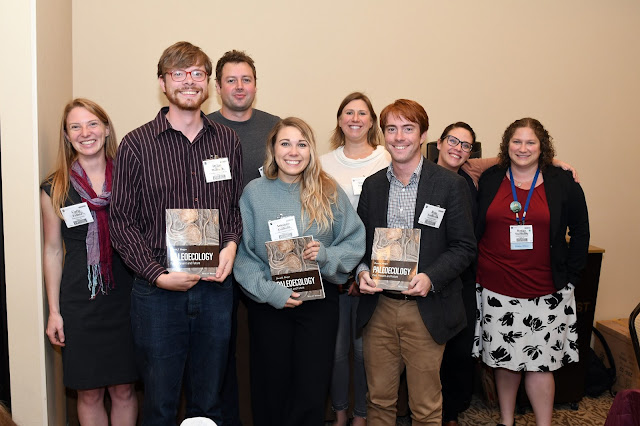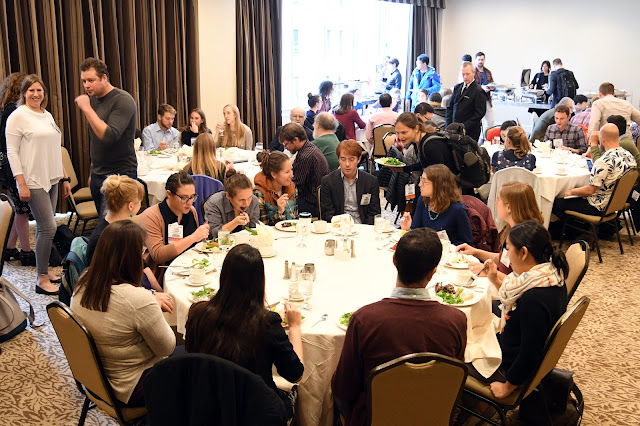Scripps Institution of Oceanography (SIO) at UC San Diego invites applications for four professorial positions listed below. We seek motivated, broad-thinking scientist/educators to establish vigorous research programs and provide intellectual leadership in their fields while complementing existing expertise at Scripps and other UCSD departments. SIO is a world-renowned center of solid earth, oceanographic, biological, and atmospheric research with approximately 200 principal investigators leading research programs. We are committed to academic excellence and diversity within the faculty, staff, and student body. The department is interested in candidates who have demonstrated a commitment to inclusive excellence by providing leadership in teaching, mentoring, research, and service towards building an equitable and diverse scholarly environment.
Marine Biogeochemistry: We seek outstanding candidates for a tenure-track Assistant Professor position in marine biogeochemistry. The potential for academic and research excellence (rather than specific research focus) will be the principal criterion for selection. In particular, we seek candidates using innovative and interdisciplinary analytical, field, and/or modeling approaches that will strengthen collaborations across disciplines at Scripps Oceanography. Areas of interest include but are not limited to: radio- and stable-isotope chemistry, regional and/or global biogeochemical cycles (e.g., C, N, P, S), the deep biosphere and/or hydrothermal systems, sedimentary biogeochemistry, diagenesis, and cycling of contaminants. For full consideration, please apply by January 8, 2018.
Assistant Professor: https://apol-recruit.ucsd.edu/apply/JPF01625
Trace Gases in the Atmosphere: We seek outstanding candidates for a position to be filled at the Associate or Full Professor level, although Assistant level appointment may also be considered. We seek applicants with interests in quantifying sources and sinks of atmospheric trace gases on global and regional scales as they particularly affect anthropogenic climate change and other large-scale environmental issues. Topics of interest include but are not limited to: inverse modeling of source and sink distributions based on atmospheric observations, innovative methods for measuring greenhouse gases and stratospheric ozone depleting substanaces in the regional and global atmosphere, and large-scale studies of industrial and biogenic gases based on atmospheric observations. Candidates will be evaluated in part on the basis of their potential to assume leadership of the Scripps component of the international Advanced Global Atmospheric Gases Experiment (AGAGE). For full consideration, please apply by January 8, 2018.
Assistant Professor: https://apol-recruit.ucsd.edu/apply/JPF01626
Associate and/or Full Professor: https://apol-recruit.ucsd.edu/apply/JPF01627
Low-Temperature Geochemistry: We seek outstanding candidates for a tenure-track Assistant Professor position in low-temperature geochemistry. We are interested in candidates who will build a program of laboratory and field studies of international standing in low-temperature geochemical applications which strengthen the research portfolio of SIO and UC San Diego. The potential for academic excellence, rather than research area, will be the principal criterion for selection. Appropriate areas for specialization could span a wide range of surficial processes in the marine and terrestrial environments. The candidate’s area of research could include but is not limited to: sediment geochemistry, fluid geochemistry, paleoclimatology, paleoceanography, geochronology, fluid-rock interaction, low- temperature geochemical cycles, trace-element geochemistry, geochemical proxy development, or surficial inorganic geochemical process in the cryosphere, weathering systems, anthropological contexts, and the fossil record. For full consideration, please apply by January 31, 2018.
Assistant Professor: https://apol-recruit.ucsd.edu/apply/JPF01628
Human Health and the Oceans: We seek outstanding candidates for a tenure-track Assistant or Associate Professor position with a history of novel research activities at the intersection of ocean sciences and human health. Research into Human Health and the Oceans (HHO) is inherently multidisciplinary, and we will consider applicants from a broad range of fields including but not limited to: natural products drug discovery, genomics, microbiome, biosynthesis, chemical ecology, biogeography, marine model organisms, biomaterials, and environmental toxicology. The successful candidate will be expected to develop a strong extramurally supported research program that integrates with and aids the growth of existing HHO research at SIO and UC San Diego, in particular at the Center for Marine Biotechnology and Biomedicine. (Documentation of strong interest and any history of achievement in mentoring undergraduate, graduate, or postdocs is required, commensurate with rank and experience.) Joint appointments with other UCSD departments may be possible for appropriate candidates. For full consideration, please apply by January 8, 2018.
Assistant Professor: https://apol-recruit.ucsd.edu/apply/JPF01629
Associate Professor: https://apol-recruit.ucsd.edu/apply/JPF01630
Each position requires a separate application submission. Current Assistant level candidates with strong academic and research profiles are also encouraged to apply separately at the Associate level, if available.
Ph.D., or equivalent degree, in a relevant field is required at the time of application. Depending on level of appointment, strong potential for or previous development of a vigorous, externally funded, and internationally recognized research program and associated scholarly impact, together with teaching, mentoring, and advising within the SIO undergraduate and graduate programs, evidence of service and broader contributions to diversity, leadership activities, and other items that will contribute positively to departmental welfare are preferred.
The University of California San Diego is an Equal Opportunity/Affirmative Action Employer. All qualified applicants will receive consideration for employment without regard to race, color, religion, sex, sexual orientation, gender identity, national origin, disability, age or protected veteran status. For
applicants with interest in spousal/partner employment, please also see: http://academicaffairs.ucsd.edu/aps/partneropp/index.html for the UCSD Partner Opportunities Program.
Each position requires a separate application submission. Current Assistant level candidates with strong academic and research profiles are also encouraged to apply separately at the Associate level, if available.
Ph.D., or equivalent degree, in a relevant field is required at the time of application. Depending on level of appointment, strong potential for or previous development of a vigorous, externally funded, and internationally recognized research program and associated scholarly impact, together with teaching, mentoring, and advising within the SIO undergraduate and graduate programs, evidence of service and broader contributions to diversity, leadership activities, and other items that will contribute positively to departmental welfare are preferred.
The University of California San Diego is an Equal Opportunity/Affirmative Action Employer. All qualified applicants will receive consideration for employment without regard to race, color, religion, sex, sexual orientation, gender identity, national origin, disability, age or protected veteran status. For
applicants with interest in spousal/partner employment, please also see: http://academicaffairs.ucsd.edu/aps/partneropp/index.html for the UCSD Partner Opportunities Program.












